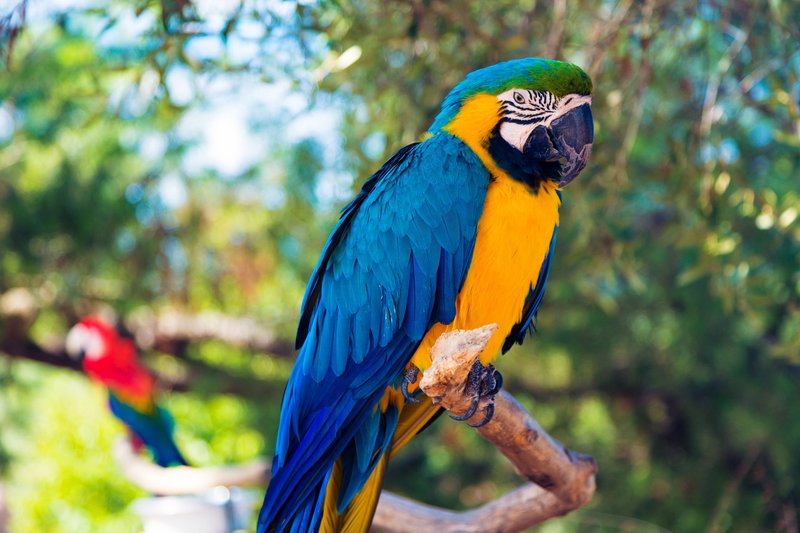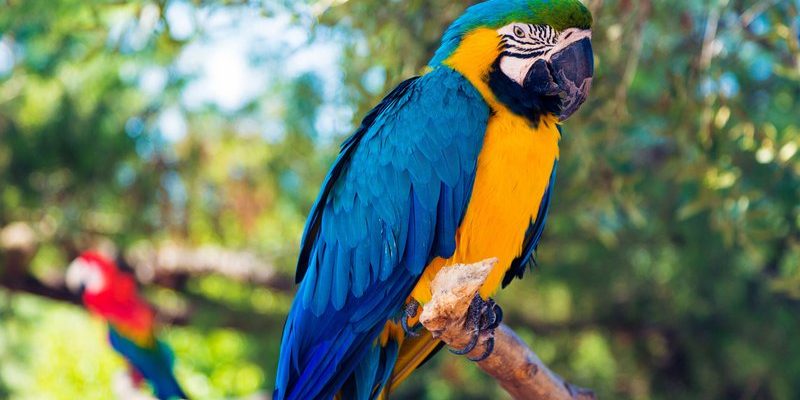
Imagine you’re looking for a companion that can brighten your day with cheerful chirps and vibrant colors. Parrots fit that bill beautifully. However, they require more care and attention than you might think. This isn’t just a simple decision of “I want a pet,” but rather one that could change your lifestyle. So, grab your coffee, and let’s explore all angles of having a parrot as a pet, especially if you’re just starting out.
Understanding Parrots: A Unique Choice
Choosing a parrot as a pet is like picking a mystery book to read—there’s always something new to learn! Parrots vary greatly in personality and needs, depending on the species. Some are small and chatty, like the budgerigar, while others, like the macaw, flaunt a more majestic presence.
Here’s the reality: parrots are social creatures. They thrive on interaction and can become lonely if left alone for long periods. This means if you’re someone who travels often or works long hours, a parrot might not be the best fit for you.
Additionally, parrots can live for a long time, with some species reaching 50 years or more. Owning a parrot is a long-term commitment, kind of like adopting a child. You have to think about your lifestyle now and how it might change over the years.
Space Requirements for Parrots
Parrots need plenty of space to explore and play. Think of it this way: would you enjoy being stuck in a small room all day? Me neither! Parrots are active and require lots of room to stretch their wings—literally.
Most owners will need to provide a large cage, plus plenty of toys to keep their feathered friends entertained. Here are some key points to consider:
- Cage size: A good rule of thumb is that the cage should be at least 1.5 times the wingspan of your parrot.
- Flying space: If possible, create a safe area for your parrot to fly around outside their cage.
- Play area: Consider some perches or play gyms where your parrot can climb and explore.
Giving your parrot enough room to roam can help reduce stress and keep them happy and healthy.
Diet and Nutrition for Parrots
Let’s talk about what your parrot eats. A balanced diet is crucial for keeping your parrot healthy. Imagine having to eat the same meal every day; it would get boring, right? Parrots can easily get bored with their food, so variety is key.
A typical parrot diet includes:
- Seeds: While many parrots love seeds, they should only be a small part of their diet.
- Pellets: These are specially formulated to provide balanced nutrition.
- Fruits and vegetables: Fresh produce provides essential vitamins and keeps meals interesting.
You’ll need to research what’s safe for your specific type of parrot. Some fruits and veggies, like avocado and chocolate, can be toxic. So, being informed is crucial.
Socializing and Training Your Parrot
Now, let’s dive into the fun part—socializing and training your parrot! Think of it as building a friendship. Just like with people, the more time you invest in your parrot, the stronger your bond will be. Parrots are intelligent and can learn tricks and even words.
Here are a few tips for successful training:
- Start slow: Begin with short sessions, maybe 5–10 minutes. Gradually increase the duration as your parrot becomes more comfortable.
- Use positive reinforcement: Treats and praise go a long way! This encourages your parrot to repeat good behavior.
- Be patient: Every parrot learns at its own pace. If they don’t get it right away, don’t get discouraged!
Training not only helps with behavior but also provides mental stimulation, making for a happy, engaged parrot.
Common Challenges with Parrot Ownership
Owning a parrot does come with its challenges, so let’s be real for a moment. They can be noisy, messy, and may develop habits like biting if they feel threatened. You might be wondering, “Is this worth it?” Well, just like any pet, they require time and patience.
Here are some common issues that might pop up:
- Noise levels: Some parrots can be very chatty, especially during early mornings or evenings.
- Mess: Parrots love to munch on their food, often leaving crumbs everywhere. Regular cleaning is essential.
- Behavioral issues: If not socialized properly, some parrots may become nippy or shy.
But don’t let these challenges scare you away! With commitment and care, you can manage these quirks.
The Long-Term Commitment of Parrot Care
Owning a parrot isn’t a short-term fling; it’s a long-term relationship. You’ll need to consider how your lifestyle could change. Think about where you’ll be in 20 years. Will you still have the time and resources to care for a pet?
Parrots also require regular veterinary check-ups. Just like you wouldn’t skip a doctor’s appointment, parrots need their health monitored too. Budgeting for these expenses is key, along with ensuring you can provide a consistent environment for your feathered friend.
In short, bringing a parrot into your home is a big decision, but it can be incredibly rewarding if you’re ready for the commitment.
Final Thoughts on Choosing a Parrot
So, are parrots good pets for beginners? The answer really depends on what you’re looking for in a pet. If you’re willing to invest time, effort, and love into caring for a social creature, then a parrot could be a fantastic companion.
Owning one can bring joy, laughter, and even a few challenges. Just like nurturing a friendship, it requires patience, communication, and a whole lot of love. If you feel ready to take on this adventure, a parrot might be the perfect pet for you. Remember, they’re not just pets—they’re family.

